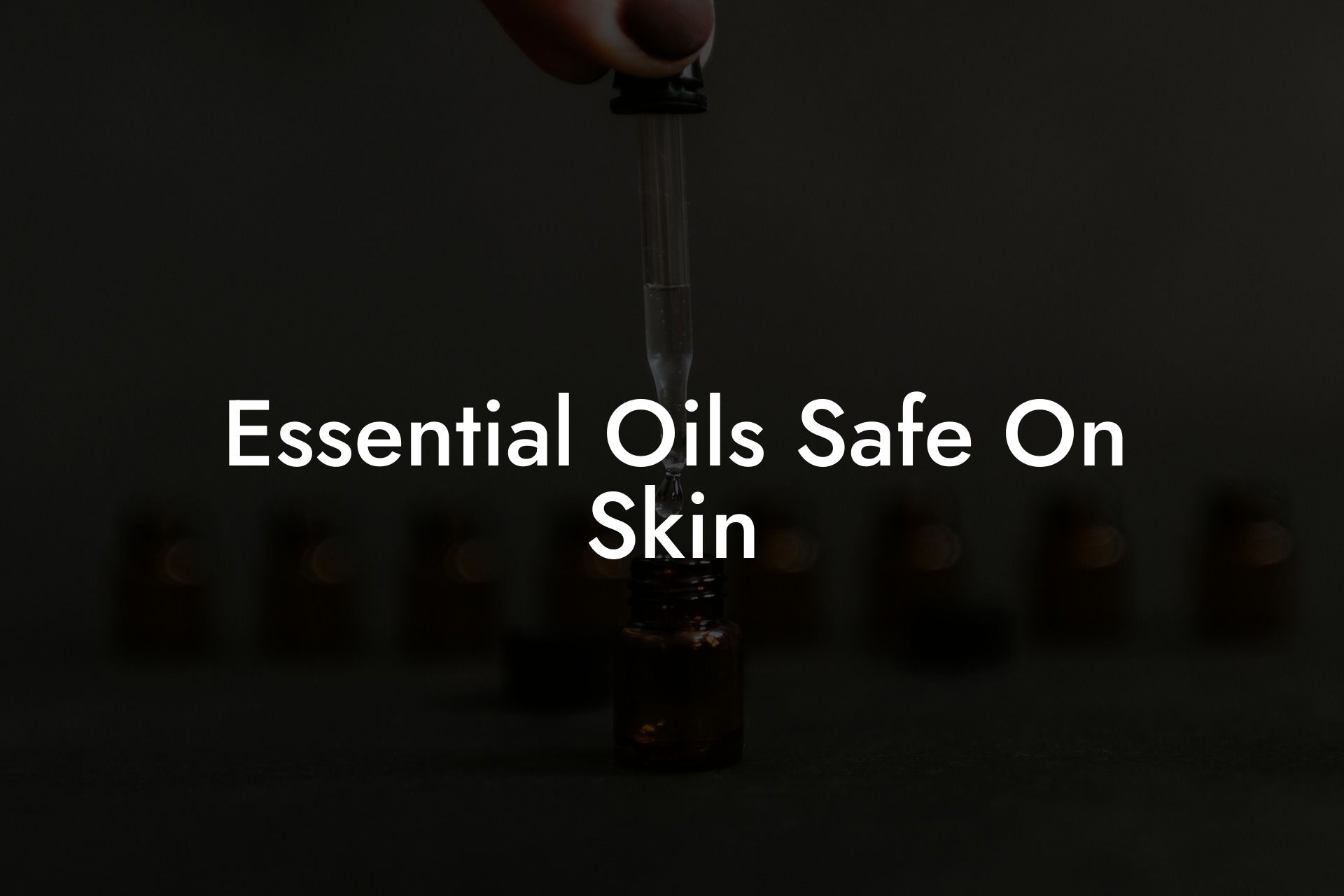Are you interested in exploring the world of essential oils and the benefits they can provide for your mind and body? You’re in the right place! In this comprehensive guide, we will delve into the best essential oils that are safe for direct application on the skin, and how to use them effectively and safely to enhance your overall wellbeing.
Table of Contents
Understanding Essential Oils
Essential oils are concentrated, volatile liquids extracted from plants. They contain various chemical compounds responsible for the plant’s fragrance and therapeutic properties. These oils are widely used in aromatherapy to promote mental, emotional, and physical wellbeing.
Essential Oils Safe for Skin Application
While essential oils offer numerous benefits, not all oils are safe to apply directly onto the skin. Some essential oils can cause irritation, sensitization, or other adverse reactions when used topically. To ensure safety, it’s crucial to choose the right oils and to dilute them with a carrier oil before application. The following essential oils are considered safe for skin application, provided they are diluted appropriately:
Lavender
- Promotes relaxation and sleep
- Reduces inflammation and irritation
- Helps to soothe minor burns and skin irritations
Tea Tree
- Excellent antiseptic properties
- Effective for treating acne and blemishes
- Reduces inflammation caused by skin conditions like eczema and psoriasis
Chamomile
- Calming and soothing effects on the skin
- Helps to reduce redness and inflammation
- Alleviates dry or irritated skin and promotes healing
Ylang-Ylang
- Balances sebum production
- Promotes a healthy, glowing complexion
- Enhances emotional wellbeing with its uplifting, floral scent
Sandalwood
- Moisturizing properties ideal for dry or mature skin
- Calming, grounding scent helps reduce stress and anxiety
- Antiseptic properties assist in healing minor skin abrasions
Diluting Essential Oils for Skin Application
Before applying essential oils to your skin, it’s crucial to dilute them with a carrier oil. The general rule of thumb is to aim for a 2-5% dilution, meaning two to five drops of essential oil per teaspoon of carrier oil. Some popular carrier oils include:
- Sweet almond oil
- Jojoba oil
- Coconut oil
- Grapeseed oil
It’s also important to perform a patch test on a small area of skin to ensure you do not have an adverse reaction before applying the diluted essential oil to a larger area.
Essential Oils Safe On Skin Example:
Imagine you have had a long day at work, and you’re feeling particularly stressed and tense. You could create a soothing, stress-relieving essential oil blend to massage into your skin. Here’s a simple yet effective example:
1. Fill a small glass bottle with 1 ounce (30 ml) of jojoba oil.
2. Add 3 drops of lavender essential oil, 3 drops of ylang-ylang essential oil, and 2 drops of sandalwood essential oil.
3. Close the bottle and shake gently to combine the oils.
4. Perform a patch test on a small area of your skin to ensure no adverse reaction occurs.
5. Apply a small amount of the blend to your wrists, neck, or temples and gently massage into the skin to unwind and alleviate stress after a hard day.
We hope this guide has provided valuable insights into safely using essential oils on your skin to enhance your overall wellbeing. Remember always to dilute your essential oils appropriately with a carrier oil and perform a patch test to ensure skin safety. Feel free to share this informative article with family and friends, and explore our other essential oil guides and Oshu Oils product range to continue your journey into the world of aromatherapy.





















